ACCT 101 - Accounting 1
This course introduces financial accounting concepts. Students learn the double-entry accounting system, including the preparation of financial statements, closing entries, internal controls for cash and payroll accounting.
BUS 100 - Business Math
This is a fundamental course in business mathematics. Topics covered include mathematics of merchandising, simple interest, compound interest, annuities, loan amortization, and cost-volume-profit analysis. This course is designed to encourage students to develop mathematical skills and abilities by applying them to common business situations. Regardless of his or her prior math experiences, this course will enhance the learner's ability to use mathematics to solve problems and make sound decisions from both a career and personal perspective.
BUS 130 - Operations Management 1
This course introduces the learner to the operations management profession. An operations manager is concerned with the planning, decision-making and actions required to produce and deliver the organization’s goods and/or services, as opposed to marketing its products, managing its human resources or accounting for its finances. Operations managers work in virtually all enterprises – manufacturing, service, government, for-profit and not-for-profit. Operations managers work in many parts of the organization, including Purchasing and Supply Chain, Inventory Management, Quality Management, Scheduling, Transportation and Logistics, and Front-line Supervision to name a few.
BUS 141 - Marketing 1
You’ll learn how to adapt and conform your products and services to differences in regulatory, legal, cultural and consumer/client requirements in international markets. Analyzing how these differences may impact the cost, product design, packaging, labeling, product testing, and service delivery, and then developing strategies around these custom aspects, is key to your long-term success in any international target market.
BUS 230 - Human Resource Management 1
This course deals mainly with the factors that affect the overall workplace atmosphere. Topics include the strategic importance of human resource management, demographic challenges, job analysis and design, human resources planning, recruitment and selection, training and orientation, government and legal challenges, and problem-solving techniques.
BUS 501 - Business Law
This course presents the basic legal principles of carrying out international business. It covers the legal implications of international business activities, discusses the legal aspects related to intellectual property, contract liability and responsibility, competition and antitrust laws, public trade law and legal issues related to E-commerce in international business. This is course that will bridge the gap between government systems, civil liability and profits.
ECON 120 - Economics
This introductory course emphasizes macroeconomics. Topics include economic principles such as opportunity cost; the law of diminishing returns; market price setting; price elasticity; and government price controls. Students also learn about unemployment, inflation, gross domestic product, money, banking and stabilization policies.
COMM 140 - Communications
This introductory communications course emphasizes the development of reading, writing, listening and speaking business communication skills at a college level. Students write for various purposes and audiences and deliver short presentations to small groups. Students research, analyze, summarize and document information. Students self and peer evaluate written documents and oral presentations. Through reading, media response and discussion exercises, students improve their communication skills. Communicating in diverse teams and across cultures is emphasized.
PPD 100 - Success in the Classroom
This is a first semester course that provides students with the tools they need for academic success. The course offers skills to help students with the transition to post-secondary education, to help them learn how to be a successful student and to make the most of their learning experience.
PPD 150 - Success in the Workplace
This course focuses on preparing students for the Canadian workplace, either in their future career or the work-integrated learning component of their Canadian College program. Students will examine their own career goals as well as topics such as safety, time management, and critical thinking, in order to help them transition into and succeed within a Canadian work environment.
PPD 200 - Business Computers 1
This course is the first part of an introduction to the computer skills required in business today. It provides the student with an introduction to computer file management and Microsoft Word.
PPD 250 - Business Computers 2
This course will introduce and further develop Microsoft Excel skills that the student will need use in subsequent semesters and in the business world. Upon completion of the course, students will be able to prepare tables and graphs, use input fields, understand and be able to use Microsoft Excel insert functions and specialized functions. These functions include goal seeking, solver and data analysis.
ECOM 125 - e-Commerce 1
This course provides students with the fundamental principles of planning and developing a successful on-line business. It covers issues like key challenges to for IT managers, opportunity analysis and business model development.
COMM 502 - Speaking and Presenting
Speaking and presenting will help students in every phase of their careers from the first interview when they have to respond to questions, to the middle years when they have to represent their companies on the telephone or in face to face interactions with clients, to later in their careers when they have to make speeches in front of hundreds of people.The purpose of this course is to help the student sharpen presentation skills, both informal and formal. It will also teach techniques to build self-confidence when placed in front of a crowd.
COMM210 - Intercultural Communication
This course prepares students to meet the challenges of intercultural business communication. Success in international business requires understanding and sensitivity in order to navigate the various differences one will encounter in a multi-cultural setting. From contrasting values and etiquette, to differences in language and non-verbal communication, students will develop the awareness and skills to transcend such differences within a multicultural environment, both international and domestic. Through assignments, readings and in-class discussion, students will gain the practical knowledge and skills for a variety of communication-based tasks, from cross-cultural negotiation to effective business correspondence.





